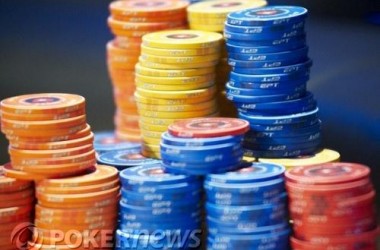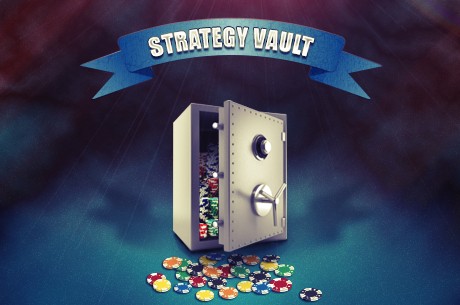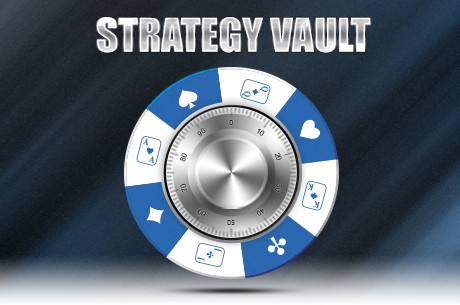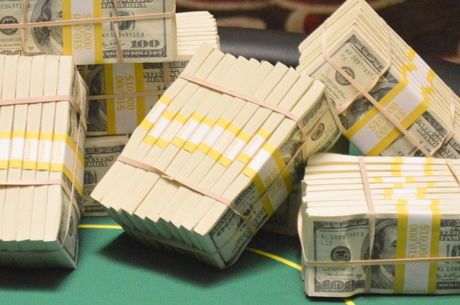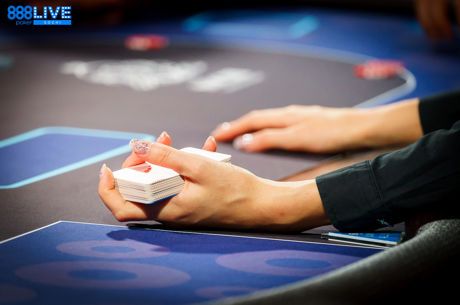Strategy Vault: Picking on Weak Players with Matthias Habernig

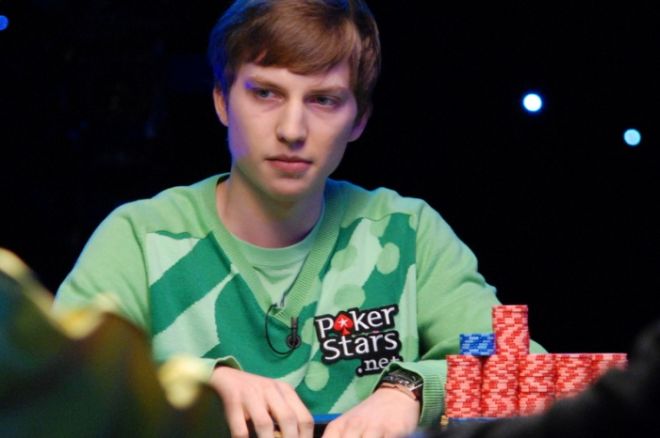
Digging deep into the PokerNews strategy archives can lead to a buried treasure, so we'll be unearthing a few gems for your viewing pleasure. In this edition of the Strategy Vault series, we'll look back at a piece from Matthias Habernig about picking on weak players.
Habernig is a young, talented tournament player. In August of 2010, he won the Latin American Poker Tour Florianopolis event for $248,000 and followed up with a sixth-place finish at the LAPT Grand Finale in Rosario for $49,000 the next month. When playing in tournaments, it's essential to find soft spots and exploit them. Along the way to his winnings, Habernig has had to master this skill. He talked to PokerNews to give a few nuggets of advice on picking on weak players.
What are some ways that you can pick out weak players at your table?
Online, you only have two things: The first is bet sizes and the second is that you can analyze a hand of a fish and see if he took a strange line.
There are different types of bad players. How do you take advantage of a bad aggressive player?
I would try to see as many flops as possible heads up with a bad aggressive player. Of course, it's better to play him heads up and in position, but you won't get that chance every time.
If a bad aggressive player is opening a lot, do you want to isolate with three-bets? And if so, what types of hands do you want to do it with?
I definitely would try to isolate and play him heads up by three-betting him, but in my opinion, it just makes sense if we are both deep enough. Your three-betting range can be really wide because you will be able to outplay him a lot post flop. However, your hand should still have some value like suited connectors and big suited cards.
What about against bad passive players, how does this change your strategy?
I wouldn't change my strategy too much. Against a bad passive player, it's probably easier because you will hardly ever get a four-bet. Against a bad aggressive player, it's tougher if you get four-bet a lot because you might have to slow down and see flops with him in multiway pots, rather than simply three-bet every time and win the pot with your own aggression.
Players talk about "picking on weak players" all the time, but what mistakes do you see those players making when trying to take advantage of a soft spot at the table?
Probably the biggest mistake is that they play too many bad hands out of position and multiway with the fish. Then after the flop, they tend to overplay those hands because they always think they are better than the bad player. While it may be true that they are better, part of being a good player is knowing when to slow down and when to give up. Against bad players, you don't need to over exert yourself by pushing every single small edge, especially in multiway pots, because there will be plenty of times when you are heads up and in position with the bad player to take advantage of your larger edge and capitalize on his mistakes.
Another big mistake is to try and bluff those bad players. You really don't need to do that. They will call you down anyway, even if you hit a big made hand.
That makes sense. Sometimes it feels like you want to rush to get their chips before someone else does, but then you get into tough situations with bad hands because you're forcing it.
Yes, most of the time it's better to wait and don't be afraid that somebody might get all the fish's money.
What about when you start flatting the fish, but then other good players at your table start squeezing, knowing that you're flatting light because of the bad player?
Yes, that can be a problem. You might be able to use that to your advantage and induce squeeze plays from the regulars with your big hands. If the regulars aren't squeezing big enough and the fish likes to call those three-bets, you might still be able to see a cheap flop in position against the bad player, but generally you try to go heads up with him to the flop.
Good point. Are you more liberal playing against a big fish in cash games since you can just rebuy if needed?
Yes, it's much better to get a fish at your cash-game table because you have the chance to reload and he has the same option. In a tournament, you would only get his tournament chips and you might lose all your chips and be out of the tournament. In a cash game, you can win several buy-ins off a big and rich fish.
When you're three-betting a weak player to isolate, what are you looking to do as far as bet sizing? Does it change with when you are three-betting a good player?
It depends if either the fish or the regs tend to four-bet you light. If that's happening a lot, I would definitely lower my three-bet size to get the chance to see flops cheaper so around two-and-a-half to three times the initial raise. If they are cold calling your three-bets, I would make it three times the raise in position and three-and-a-half to four times out of position. That way you get a bigger pot and it's easier to get all the money in if you want to.
What about post-flop play; is there any advice you can give on continuation betting, double or triple barreling against bad passive or bad aggressive players?
Against a bad passive or bad aggressive player, I would be continuation betting almost every flop and see how the player reacts to that. If he tends to raise my a lot, I would slow down a little bit. I would only make double or triple barrels against some bad players, and most of the time only with a semi-bluff. Continuation betting is really dependent on the player. You can't have one rule for all bad payers.
So do you have any other advice for playing against or picking on weak players?
My biggest advice is to not overplay any hands against a fish. The best thing you can do is to wait until you hit a big made hand, and than you can get all the chips in the middle.
This article was originally published on December 1, 2010.
Want to learn more about the different variants of poker? Check out the Poker Rules section here on PokerNews.
To stay on top of the poker world, follow us on Twitter and like us on Facebook.

